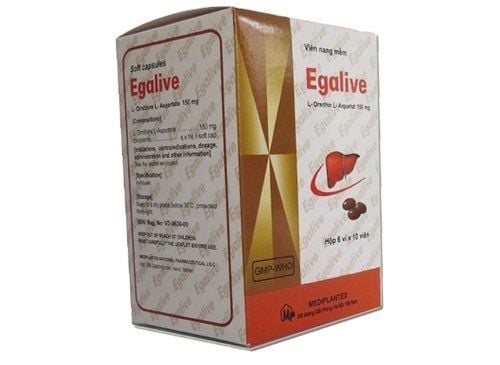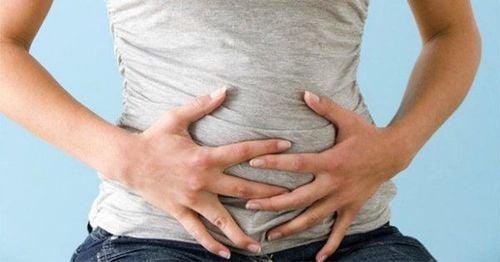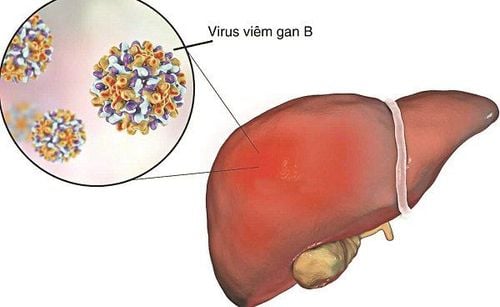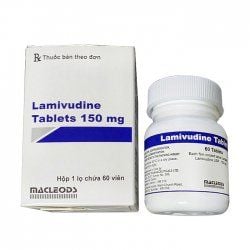This is an automatically translated article.
The article was professionally consulted by Doctor Nguyen Thi Hong On - Department of Obstetrics and Gynecology - Vinmec Phu Quoc International General Hospital. The doctor has 10 years of experience in Obstetrics and Gynecology and has worked in all positions in the clinic area, delivery room, emergency room for obstetrics and gynecology, procedure room and treatment area on request.Any person is at risk of contracting hepatitis B, this is a common disease with a very high degree of liver cell destruction. Therefore, many women are quite worried and do not know what to do when the hepatitis B test during pregnancy shows positive or negative HBsAg results.
1. What is the HBsAg test for?
HBsAg is an acronym for Hepatitis B surface Antigen. Conduct an HBsAg test to check if the patient is infected with the B virus. A positive or negative HBsAg result will be clearly shown when the test is performed.In case the HBsAg test result is positive (+), it means that the patient's serum contains HBsAg antigen and the patient has been or is infected with hepatitis B virus; If the HBsAg test result is negative (-), the patient can rest assured that he does not have the hepatitis B virus. However, to be sure, the patient needs to conduct some more tests.
2. What to do when the mother is HBsAg positive/negative?
Hepatitis B is a dangerous disease that can be transmitted through many different ways, including the way from mother to baby during childbirth, whether vaginal birth or cesarean section. At this time, the blood from the sloughed placenta will be transferred to the baby and the mother's fluid and blood will be transmitted to the newborn.When a pregnant mother is infected with hepatitis B, the possibility of transmitting it to her baby is great. Therefore, infants should be vaccinated with hepatitis B vaccine within the first 24 hours after birth and receive a shot of hepatitis B serum (HBIG) in the first 12 hours after birth (if available). After that, 3 doses of hepatitis B vaccine must be given to the child according to the schedule. Doing this will help reduce the rate of mother-to-child transmission of pathogens by up to 95%.
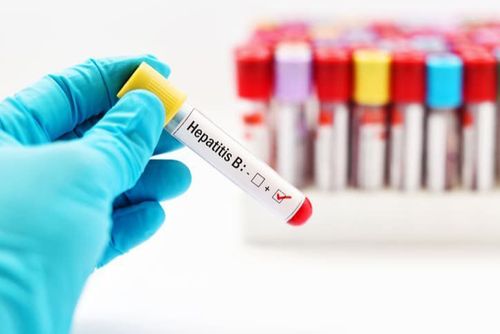
Bà mẹ cần xét nghiệm HHBsAg
Especially, during pregnancy, the mother needs to monitor her health and liver enzymes regularly by a specialist.
In case the pregnant woman has negative HBsAg and anti-HBs test results, she should save the test results in the antenatal checkup file and then take the hepatitis vaccine which is safe for pregnant women.
3. Infants suspected of having hepatitis B, what to do?
Testing for hepatitis B during pregnancy is essential to take good preventive measures if a pregnant woman contracts this disease. However, if the newborn is suspected of being infected with hepatitis B from the mother, it is necessary to take the baby to the hospital for examination immediately.After carrying out the necessary hepatitis B tests during pregnancy and determining that the baby is infected with hepatitis B, it is necessary to strictly follow the doctor's instructions on the treatment plan. In addition, for children with symptoms of jaundice in remission, they should be examined every 6 months.
For effective and safe disease screening, women of childbearing age who have not been infected with the hepatitis B virus need to be vaccinated immediately, and for pregnant women infected with hepatitis B, they need to be consulted. Ask your doctor about measures to prevent mother-to-child transmission.
4. Prevention of hepatitis B infection in the pre-pregnancy stage
In fact, hepatitis B is not caused by a genetic mutation, but by the attack of a blood-borne virus, so when a pregnant woman is infected with hepatitis B, she can infect her baby. children without the right precautions. One of the safest ways to prevent mother-to-child transmission of hepatitis B is to have a clear plan before birth.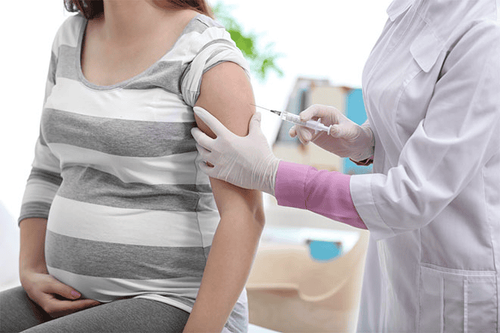
Tiêm vắc xin phòng tránh lây nhiễm viêm gan B giai đoạn tiền thai phụ
In addition, it is necessary to choose the right pregnancy time. If you have been infected but the virus thrives and is difficult to control, please stop planning to become pregnant and proceed with treatment and restore liver function. In fact, there are many cases of patients being treated for hepatitis B but having an unintended pregnancy, stopping treatment at this time will make the virus more powerful. Therefore, patients should carefully consult their doctor about this case.
Measures to control the virus during pregnancy is also one of the effective ways to prevent hepatitis B infection from mother to baby. At the end of pregnancy, pregnant women infected with hepatitis B should be vaccinated with the vaccine and the use of injectable and oral drugs should be carried out under the direction of the doctor.
Hepatitis B is a common and rapidly progressive disease without timely treatment. Patients can have liver damage, liver function decline seriously and even lead to cirrhosis, liver cancer .... Therefore, please actively learn knowledge about this disease and take measures Prevent the risk of infection by getting vaccinated against hepatitis B as soon as possible.
Please dial HOTLINE for more information or register for an appointment HERE. Download MyVinmec app to make appointments faster and to manage your bookings easily.





